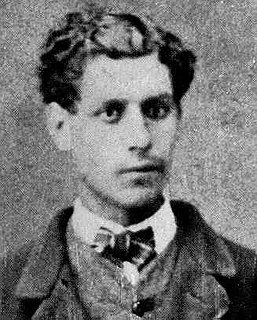A Quote by Charles Baudelaire
The idea which man forms of beauty imprints itself throughout his attire, rumples or stiffens his garments, rounds off or aligns his gestures, and, finally, even subtly penetrates the features of his face.
Related Quotes
The idea of beauty which man creates for himself imprints itself on his whole attire, crumples or stiffens his dress, rounds off or squares his gesture, and in the long run even ends by subtly penetrating the very features of his face. Man ends by looking like his ideal self. These engravings can be translated either into beauty or ugliness; in one direction, they become caricatures, in the other, antique statues.
Socrates was the chief saint of the Stoics throughout their history ; his attitude at the time of his trial, his refusal to escape, his calmness in the face of death , and his contention that the perpetrator of injustice injures himself more than his victim, all fitted in perfectly with Stoic teaching. So did his indifference to heat and cold, his plainness in matters of food and dress, and his complete independence of all bodily comforts.
Finally, this is one way to reconcile the delight in beauty with the bourgeois life. Aschenbach, on one reading, has spent virtually all of his adult life balancing his restrained homosexuality, which is bound together with his sensitivity to beauty and thus with his artistic vocation, against the demands of conventional society.
Amid the worry of a self- condemnatory soliloquy, his demeanour seemed grave, perhaps cold, both to me and his mother. And yet there was no bad feeling, no malice, no rancour, no littleness in his countenance, beautiful with a man's best beauty, even in its depression. When I placed his chair at the table, which I hastened to do, anticipating the servant, and when I handed him his tea, which I did with trembling care, he said: "Thank you, Lucy," in as kindly a tone of his full pleasant voice as ever my ear welcomed.
Michael [Jackson] reconstructed his face and deconstructed the African features into a spooky European geography of fleshly possibilities, and yet what we couldn't deny, that even as his face got whiter and whiter his music got Blacker and Blacker. His soul got more deeply rooted in the existential agony and the profound social grief that Black people are heir to.
If a man withdraws his mind from the love of beauty, and applies it as sincerely to the love of the virtuous; if, in serving his parents, he can exert his utmost strength; if, in serving his prince, he can devote his life; if in his intercourse with his friends, his words are sincere - although men say that he has not learned, I will certainly say that he has.
Strange is the vigour in a brave man's soul. The strength of his spirit and his irresistible power, the greatness of his heart and the height of his condition, his mighty confidence and contempt of danger, his true security and repose in himself, his liberty to dare and do what he pleaseth, his alacrity in the midst of fears, his invincible temper, are advantages which make him master of fortune.
The master in the art of living makes little distinction between his work and his play, his labor and his leisure, his mind and his body, his information and his recreation, his love and his religion. He hardly knows which is which. He simply pursues his vision of excellence at whatever he does, leaving others to decide whether he is working or playing. To him he's always doing both.





































